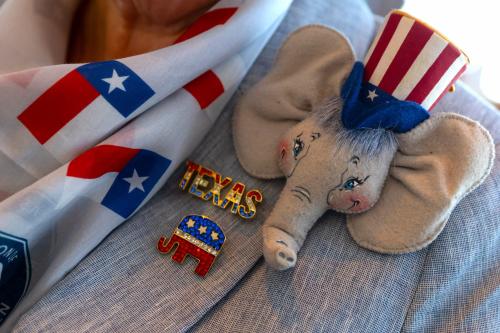British politics is starting to resemble a bowling alley. One after another, political figures are tumbling–including the leading lights of the Brexit campaign. They sowed the wind and now are reaping the whirlwind.
First to topple was the prime minister. After the referendum, David Cameron announced that he would step down. Last week fellow Conservative Boris Johnson, the leading light of the Brexit campaign, said he would not run to succeed Mr. Cameron after his ally Michael Gove, the justice secretary, concluded, in quintessentially British style, that Mr. Johnson lacked “the team captaincy” required. Then Nigel Farage stepped down as leader of the UK Independence Party, saying “I want my life back.” Labour Party leader Jeremy Corbyn has lost the support of his parliamentary colleagues and may be next to fall.
The exit of the leading Brexiteers is a relief. The skills required to run a populist, fact-averse campaign are not the same skills needed to lead a nation. For all his mercurial talents, on full display during his colorful stint as mayor of London, Boris Johnson would have been a disastrous prime minister. The alternatives–especially Mr. Gove and Home Secretary Theresa May–are steadier souls. Both are also better positioned to unite Conservative members of Parliament and hold on until the next scheduled general election, in 2020.
Mr. Corbyn is likely to go; the question really is when. It he doesn’t, the Labour Party will break apart. In his case the departure will be only slightly about the vote to remain in or leave the European Union. Broadly, his fellow Labour MPs didn’t want him as their leader in the first place; it was the votes of more left-wing party members that propelled him to the leadership, and many see him as an electoral liability. (He is.)
There is no direct connection between Brexit and Donald Trump. But a few things can still be deduced on this side of the pond. First, Mr. Trump may succeed in making the connection tighter. His immediate announcement that the vote was about “declaring independence” reflected his sharpening political instincts. The day after the vote, Mr. Trump said: “The people of the United Kingdom have exercised the sacred right of all free peoples. They have declared their independence from the European Union. … Come November, the American people will have the chance to re-declare their independence. Americans will have a chance to vote for trade, immigration and foreign policies that put our citizens first.”
Independence is a powerful populist theme, one Mr. Trump is likely to exploit it to its fullest.
Brexit and the economic and political chaos it has already sparked are proof that no matter how crazy or far-fetched an electoral outcome appears, it can happen. Right up to the last minute, many believed that even if the vote were close, it would be to remain in the EU. At some level we just couldn’t imagine the alternative. Maybe Mr. Cameron and Mr. Corybn felt the same, which is why they were so complacent. Not so, the other side.
All this suggests the wisdom of treating every poll with a fistful of salt. Electorates are becoming more volatile and more visceral. Pollsters are getting it wrong as often as they get it right. The last general election in the U.K. is another case in point. Populist sentiment wrecks standard political models. When people are angry, they don’t weigh the costs and benefits of their actions in the usual way; that’s true in life and it’s true in voting.
It’s also why it’s risky to allow populist campaigners near the levers of power. I’ve written in this space before about the dangers of injecting direct democracy in a parliamentary political system. Think of referendums as akin to Ming vases: something rare, to be handled with great care. The British Parliament is now acting as a firebreak. The leading populists will not get the keys to 10 Downing Street.
But the United States holds direct elections for president. If Donald Trump wins in November, he will assume the most powerful office in the world. There is no firebreak, no buffer, no second chance.
Editor’s note: This piece originally appeared on the Wall Street Journal’s Washington Wire blog.


Commentary
Op-edAs Brexit fallout topples U.K. politicians, some lessons for the U.S.
July 6, 2016